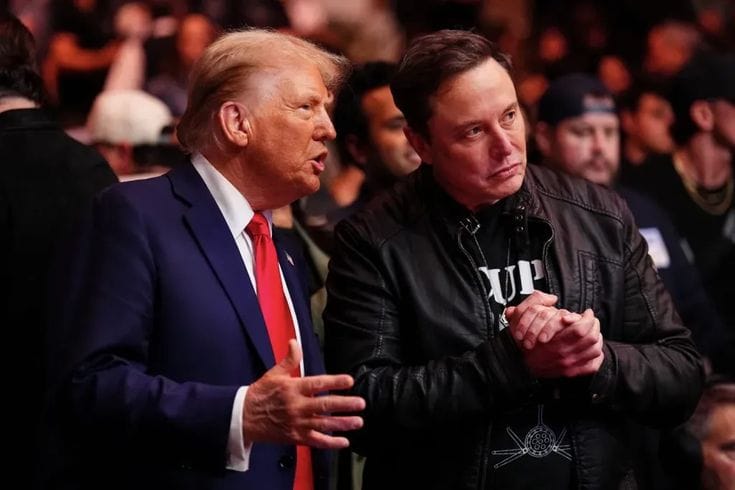In a country where politics and performance increasingly blur, the recent public spat between Elon Musk and Donald Trump on X (formerly Twitter) reads less like political discourse and more like a clash of egos on a virtual stage. What should have been an exchange of ideas quickly devolved into a melodramatic contest for attention, one driven not by ideology or policy, but by personal branding and digital dominance. This spectacle, though laughable on the surface, reflects a deeper crisis in American public life: a culture where visibility is mistaken for value, and leadership is measured not by substance but by screen time.
Musk V/S Trump: Battle of Egos
The conflict, which began as a series of indirect criticisms, quickly escalated into a full-fledged exchange of personal insults and rhetorical jabs. Trump accused Musk of opportunism, even suggesting that Musk’s early success was built on government support. Musk responded with a veneer of detached rationality, casting himself as a level-headed innovator uninterested in petty political games. Yet beneath the surface, both men are doing the same thing: vying for public attention and control over narrative.
Politics meets Performance
This feud is not rooted in policy disagreements or contrasting visions for the future. Instead, it is a competition over relevance. Trump aims to reassert his dominance in the political landscape, while Musk seeks to solidify his influence over technology, communication, and culture. Although they operate in different spheres, both understand that in today’s media ecosystem, attention is the most valuable currency.
Relevance over Policy
Their exchange illustrates a broader trend in which the performative increasingly replaces the substantive. Rather than addressing national or global challenges, the conversation veers toward self-promotion, grievance, and spectacle. Public platforms once heralded as democratic tools for transparency and debate have become stages for elite showmanship. The audience, meanwhile, has been conditioned to consume conflict as entertainment, reducing political engagement to viral moments and trending hashtags.
X as a Political Weapon
X itself plays a pivotal role in this transformation. Once envisioned as a space for activism and public dialogue, it now functions as a battleground for ego-driven influence. Musk’s acquisition of the platform under the guise of “free speech” has led to more chaos than clarity, as algorithmic bias and personal agendas shape what people see. Trump’s return, following his ban for inciting violence, further blurs the line between expression and manipulation.
Showmanship V/S Statesmanship
Amid this spectacle, real issues ranging from climate change and wealth inequality to democratic backsliding go largely unaddressed. The feud serves as a distraction from the urgent policy debates the public deserves. Instead of thought leadership, we get digital theatrics. Instead of accountability, we get applause.
Ultimately, the Musk–Trump conflict is not a political milestone but a cultural mirror. It reflects the absurdity of a system where those with the loudest voices command the most power, regardless of merit or consequence. The Great American Circus is not just a metaphor—it is the reality of a society that rewards outrage over insight.
As the spotlight lingers on this ongoing drama, one must ask: are we witnessing leadership or merely watching a performance? The answer, unfortunately, seems to be the latter.

